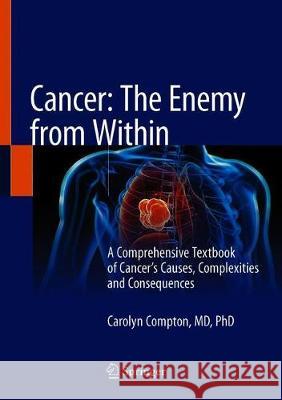Cancer: The Enemy from Within: A Comprehensive Textbook of Cancer's Causes, Complexities and Consequences » książka
topmenu
Cancer: The Enemy from Within: A Comprehensive Textbook of Cancer's Causes, Complexities and Consequences
ISBN-13: 9783030406509 / Angielski / Twarda / 2020 / 330 str.
Cancer: The Enemy from Within: A Comprehensive Textbook of Cancer's Causes, Complexities and Consequences
ISBN-13: 9783030406509 / Angielski / Twarda / 2020 / 330 str.
cena 382,84 zł
(netto: 364,61 VAT: 5%)
Najniższa cena z 30 dni: 382,84 zł
(netto: 364,61 VAT: 5%)
Najniższa cena z 30 dni: 382,84 zł
Termin realizacji zamówienia:
ok. 20 dni roboczych.
ok. 20 dni roboczych.
Darmowa dostawa!
Kategorie BISAC:
Wydawca:
Springer
Język:
Angielski
ISBN-13:
9783030406509
Rok wydania:
2020
Wydanie:
2020
Ilość stron:
330
Waga:
0.77 kg
Wymiary:
25.91 x 19.56 x 1.78
Oprawa:
Twarda
Wolumenów:
01











